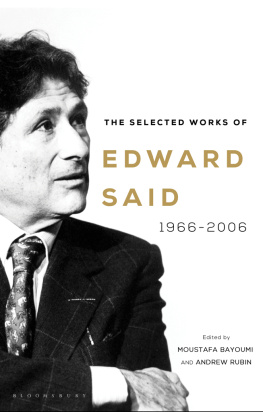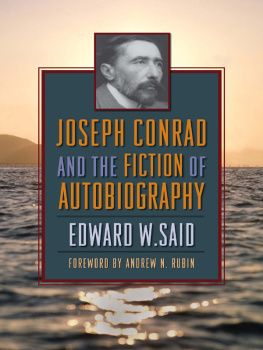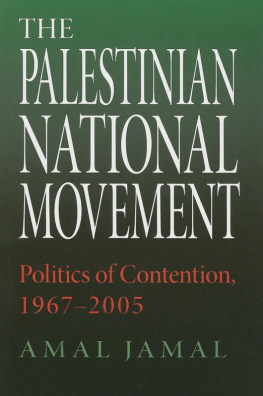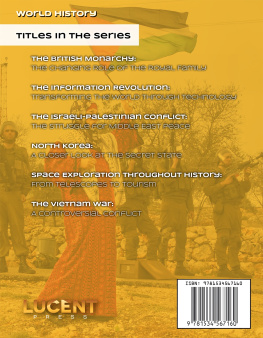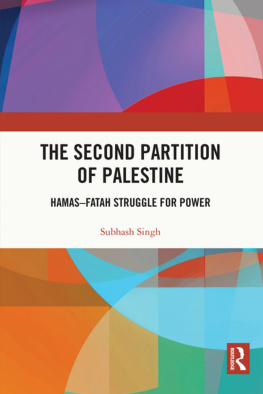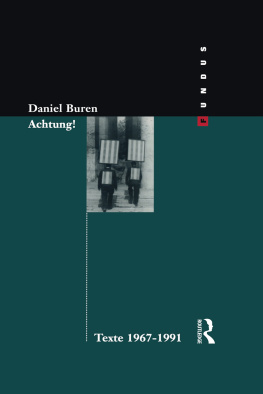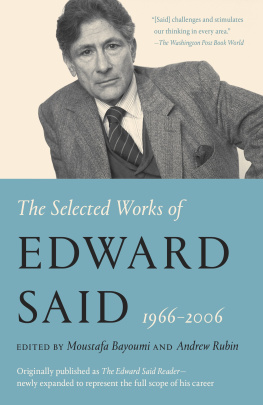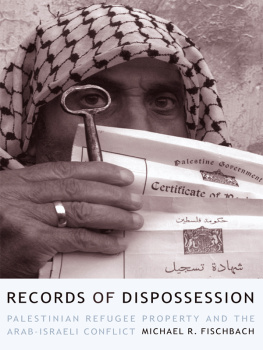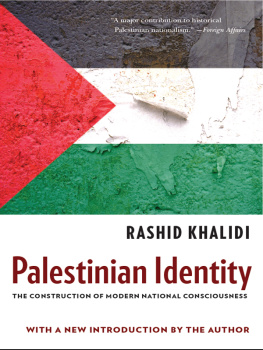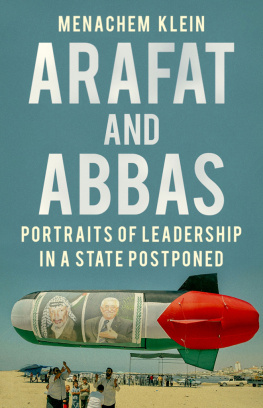Edward Said - The Politics of Dispossession: The Struggle for Palestinian Self-Determination, 1969-1994
Here you can read online Edward Said - The Politics of Dispossession: The Struggle for Palestinian Self-Determination, 1969-1994 full text of the book (entire story) in english for free. Download pdf and epub, get meaning, cover and reviews about this ebook. year: 2012, publisher: Vintage, genre: Politics. Description of the work, (preface) as well as reviews are available. Best literature library LitArk.com created for fans of good reading and offers a wide selection of genres:
Romance novel
Science fiction
Adventure
Detective
Science
History
Home and family
Prose
Art
Politics
Computer
Non-fiction
Religion
Business
Children
Humor
Choose a favorite category and find really read worthwhile books. Enjoy immersion in the world of imagination, feel the emotions of the characters or learn something new for yourself, make an fascinating discovery.

- Book:The Politics of Dispossession: The Struggle for Palestinian Self-Determination, 1969-1994
- Author:
- Publisher:Vintage
- Genre:
- Year:2012
- Rating:5 / 5
- Favourites:Add to favourites
- Your mark:
- 100
- 1
- 2
- 3
- 4
- 5
The Politics of Dispossession: The Struggle for Palestinian Self-Determination, 1969-1994: summary, description and annotation
We offer to read an annotation, description, summary or preface (depends on what the author of the book "The Politics of Dispossession: The Struggle for Palestinian Self-Determination, 1969-1994" wrote himself). If you haven't found the necessary information about the book — write in the comments, we will try to find it.
Edward Said: author's other books
Who wrote The Politics of Dispossession: The Struggle for Palestinian Self-Determination, 1969-1994? Find out the surname, the name of the author of the book and a list of all author's works by series.
The Politics of Dispossession: The Struggle for Palestinian Self-Determination, 1969-1994 — read online for free the complete book (whole text) full work
Below is the text of the book, divided by pages. System saving the place of the last page read, allows you to conveniently read the book "The Politics of Dispossession: The Struggle for Palestinian Self-Determination, 1969-1994" online for free, without having to search again every time where you left off. Put a bookmark, and you can go to the page where you finished reading at any time.
Font size:
Interval:
Bookmark:
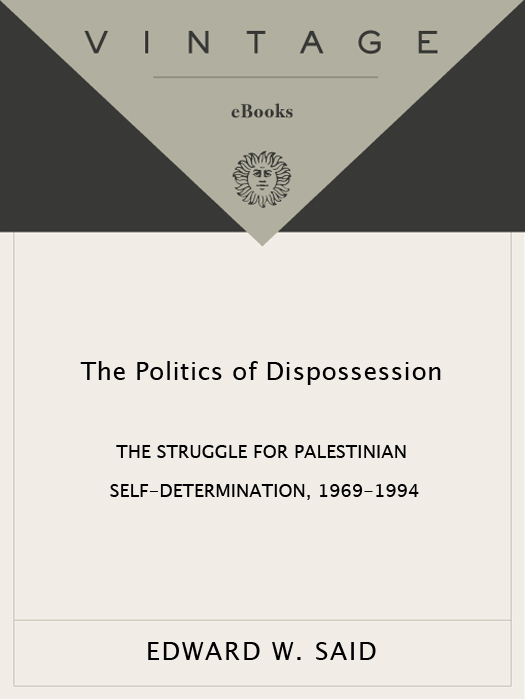
THE POLITICS OF DISPOSSESSION
Edward W. Said was the author of more than twenty books, including Culture and Imperialism and Orientalism, which was nominated for the National Book Critics Circle Award. He died in 2003.
Parallels and Paradoxes (with Daniel Barenboim)
Power, Politics, and Culture
The Edward Said Reader
(edited by Moustafa Bayoumi and Andrew Rubin)
Out of Place
The End of the Peace Process
Entre guerre et paix
The Pen and the Sword
Peace and Its Discontents
Representations of the Intellectual
The Politics of Dispossession
Culture and Imperialism
Musical Elaborations
Blaming the Victims:
Spurious Scholarship and the Palestinian Question
After the Last Sky
The World, the Text, and the Critic
Covering Islam
Literature and Society
The Question of Palestine
Orientalism
Beginnings: Intention and Method
Joseph Conrad and the Fiction of Autobiography
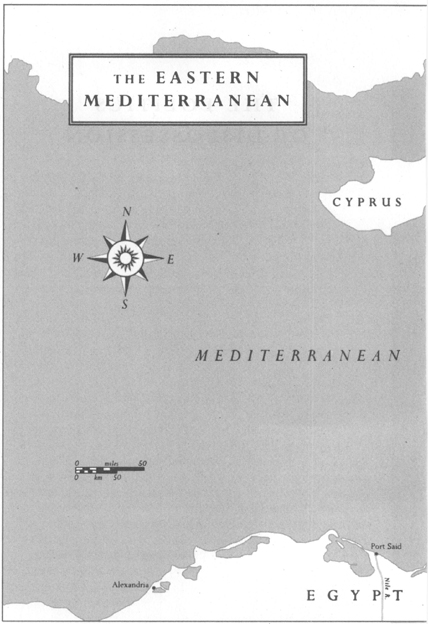
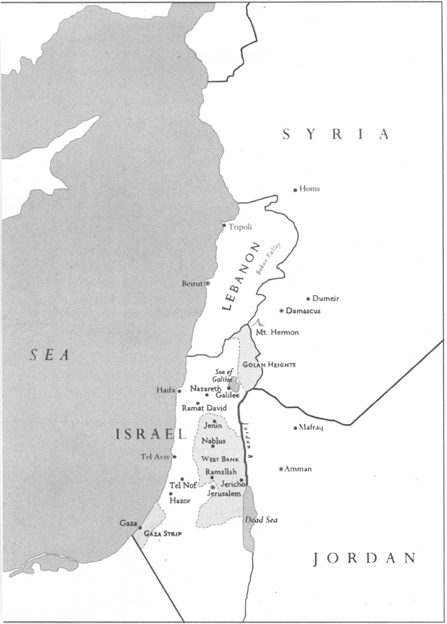
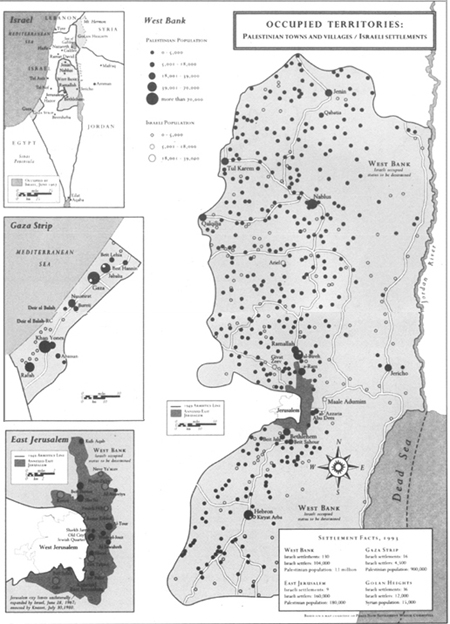
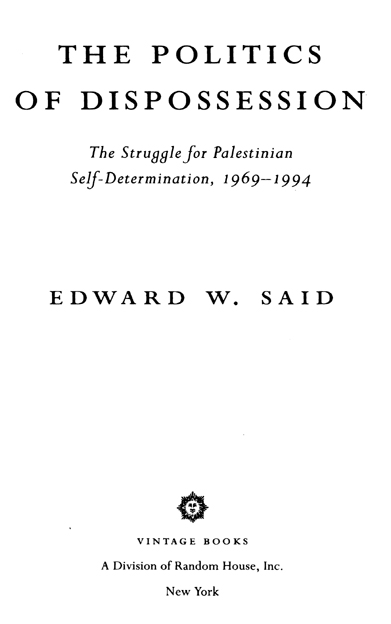
FIRST VINTAGE BOOKS EDITION, JUNE 1995
Copyright 1994 by Edward W. Said
Maps copyright 1994 by Vikki Leib
All rights reserved under International and Pan-American
Copyright Conventions. Published in the United States by Vintage Books, a division of Random House, Inc., New York, and simultaneously in Canada by Random House of Canada Limited, Toronto. Originally published in hardcover by Pantheon Books, New York, in 1994.
Permissions acknowledgments appear on .
The Library of Congress has cataloged the Pantheon edition as follows:
Said, Edward W.
The politics of dispossession: the struggle for Palestinian self-determination, 19691994 / by Edward W. Said.
p. cm.
Includes bibliographical references.
eISBN: 978-0-307-82963-4
1. Jewish-Arab relations1973 2. Palestinian ArabsPolitics and government. 3. Arab countriesPolitics and government1945
I. Title.
DS119.7.S3325 1994
956.9404dc20 93-38465
v3.1
For Bayan and Shafiq al-Hout
T he first person to propose that I publish a collection of my political essays was Michael Sprinker, a former student, friend, and colleague at SUNY, Stonybrook. I will always be grateful to him for his support and interest, and especially for his generosity in making the initial selection and preliminary edit of some of my articles. Later, I was fortunate that my dear friends Frances Coady of Vintage (UK) and Shelley Wanger of Pantheon gave me the benefit of their attention and expert help. Once again, Zaineb Istrabadi assisted me ably with the manuscripts preparation; I am most grateful.
This book is dedicated to Bayan Nowaihid al-Hout and Shafiq al-Hout. Bayan is now one of our finest scholars of the history of Palestine, chronicler of the lives of ordinary as well as exceptional Palestinians, teacher and friend. Shafiq is a brilliant orator and wit, writer and political activist. Independent and incorruptible, he deserted neither his post nor his principles. Together, they have lived the politics of Palestinian dispossession with grit and grace.
E.W.S.
New York
November 1993
U ntil the June 1967 war I was completely caught up in the life of a young professor of English and comparative literature at Columbia University. I was born in Jerusalem in late 1935, and I grew up there and in Egypt and Lebanon; most of my familydispossessed and displaced from Palestine in 1947 and 1948had ended up mostly in Jordan and Lebanon. Sent to America as a schoolboy in 1951, I had completed my education here by 1963, and began teaching later that year. All through those twelve years, however, I would spend vacations (and once even a full year) in the Middle East, since that is where my family lived and where I continued to feel most at home. All that changed forever in mid-1967.
For the first time since I had left to come to the United States, I was emotionally reclaimed by the Arab world generally and by Palestine in particular. This was a direct result of the warwhich I experienced in New Yorkand of the severely damaged political, cultural, and, of course, military and geographical situation that it created. My generation had been formed by the Arab nationalism represented by the late nineteenth century Nahda, the renaissance of Arabic culture that culminated in the great 1917 Arab revolt against the Ottoman Empire. Our sense of our own history was that at the very moment that we were entitled to, and indeed promised, our independence by the British and French, who had urged us to rebel, we were betrayed by them. Between them, the two great colonial powers redesigned the Arab countries into zones of influence which they ruled as mandates or protectorates. In addition, the Balfour Declaration of 1917 promised Palestine to the Zionists as a Jewish national home.
After World War II, when the two European powers were forced to dismantle their empires, a whole series of independent Arab states emerged, most of them led by military men or traditional leaders whose watchword was Palestine. The greatest of these was Egypts Gamal Abdel Nasser, whose fiery charisma, personal incorruptibility, and almost limitless dedication to pan-Arab unity and anti-imperialist struggle dominated the Middle East during my formative years; even though I was in the United States I felt the great power of his appeal and did not much question his ability to liberate and unify the Arab world. It was also Abdel Nassers achievement to propel the Arabs into the Third World: During his tenure, Cairo was one of the centers of the Non-Aligned movement, the Afro-Asian movement, and of worldwide anti-imperialist liberation struggle. In a matter of six days, however, everything that Abdel Nasser and his followers had created came apart. To be an Arab meant a sense of defeat, profound shock, and bewildering uncertainty.
Starting that summer, I began to feel that what happened in the Arab world concerned me personally and could no longer be accepted with a passive political disengagement, not least because at the same moment that pan-Arabism lay in ruins, the Palestinian national movement emerged first in Jordan, then in Lebanon, then, more or less, whereverincluding North AmericaPalestinians lived. Friends I had known in America during the 1950s, usually as fellow-students, were suddenly galvanized into new and highly politicized activity. One in particular, Hanna Mikhail, who like me had become an American academic, gave up his teaching position at the University of Washington and flew to Jordan to join the movement (the Resistance as everyone called it then). Within a matter of months, he had become a ranking information officer with whom I had frequent contact until his untimely death in 1976 during the Lebanese Civil War. Another old friend and distant relative was Kamal Nasser, whom I had seen often in Cairo during the early years of the Abdel Nasser era; a political refugee from the Jordanian government, which then controlled the West Bank, he was a native West Banker who after 1967 also joined the movement, where his gifts as poet, orator, and analyst propelled him to its very top. He was its extremely effective chief spokesman when, in April of 1973, he was assassinated by an Israeli hit team in Beirut.
Font size:
Interval:
Bookmark:
Similar books «The Politics of Dispossession: The Struggle for Palestinian Self-Determination, 1969-1994»
Look at similar books to The Politics of Dispossession: The Struggle for Palestinian Self-Determination, 1969-1994. We have selected literature similar in name and meaning in the hope of providing readers with more options to find new, interesting, not yet read works.
Discussion, reviews of the book The Politics of Dispossession: The Struggle for Palestinian Self-Determination, 1969-1994 and just readers' own opinions. Leave your comments, write what you think about the work, its meaning or the main characters. Specify what exactly you liked and what you didn't like, and why you think so.

